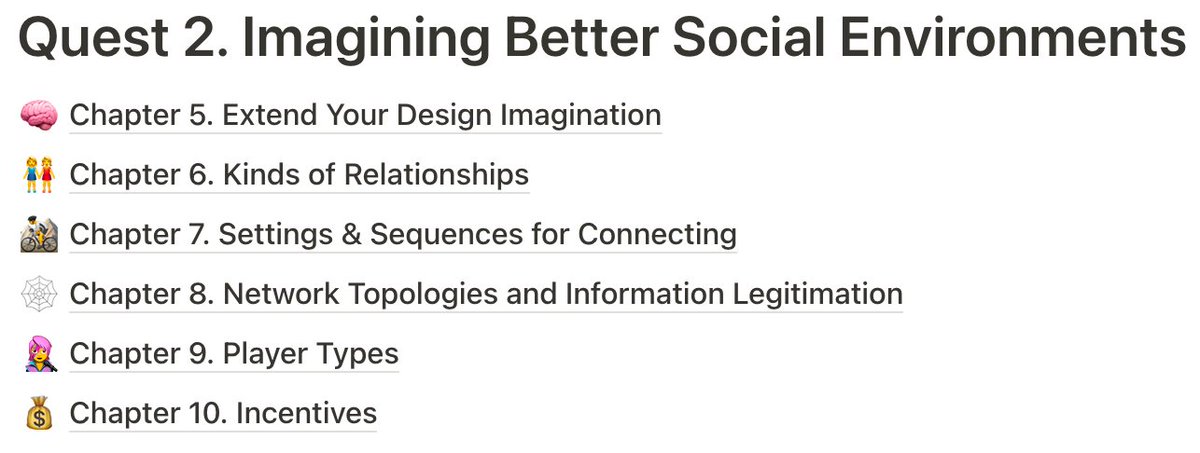Design imagination, and how to improve it  https://abs.twimg.com/emoji/v2/... draggable="false" alt="👇" title="Rückhand Zeigefinger nach unten" aria-label="Emoji: Rückhand Zeigefinger nach unten">
https://abs.twimg.com/emoji/v2/... draggable="false" alt="👇" title="Rückhand Zeigefinger nach unten" aria-label="Emoji: Rückhand Zeigefinger nach unten">
Most people, even leading designers (inventors of voting systems, social networks, etc) can only imagine changing their designs in certain ways. Other changes don& #39;t occur to them.
So, when designers at Facebook think about harassment or spam, they mostly think about inclusion and exclusion. They miss other kinds of changes, because they haven& #39;t trained their design imagination. For instance..
• New Kinds of Relationships. Imagine a buddy system, with shared responsibility for posts.
• Legitimation Changes. Like peer-to-peer fact checking, staged release, or post displayed with criteria that determine their visibility, with the chance to argue about those criteria.
• Legitimation Changes. Like peer-to-peer fact checking, staged release, or post displayed with criteria that determine their visibility, with the chance to argue about those criteria.
• Changes in the Sharing Environment. Posters could get a clearer sense of their likely audience, and how much time that audience will spend with the post.
A similar lack of imagination afflicts designers of voting systems. Take quadratic voting. It& #39;s designers think about incentives, and a bit about information legitimation. What don& #39;t they consider?
- Kinds of relationships besides voter and proposer.
- Settings & timings which might lead to more thoughtful votes.
- Network structures to allow a proposal to find the right polity.
etc
- Settings & timings which might lead to more thoughtful votes.
- Network structures to allow a proposal to find the right polity.
etc
Lack of imagination even affects dinner parties. Most hosts think about settings and player types, but not other factors.
The good news: you can train your design imagination!
The good news: you can train your design imagination!
At the School for Social Design, we try to activate your imagination in five areas. We make quick prototypes in each.
We also get nerdy about how environments affect people. For instance, speaking honestly involves reflecting—harder in noisy rooms or with little time. It may require more nuanced relationships (mentor, confidant, etc) than that between online & #39;creators& #39; and their audience.
An exercise called "Action Maps" breaks values like honesty into the smallest possible actions, what we call "hard steps". This shows why a value can be hard to live by in an environment.
This helps you design better. It also makes you a better *critic*, because critiquing something is easier when you see how to change it. Opportunities to improve social systems will start popping up, wherever you go. /END https://human-systems.org/school ">https://human-systems.org/school&qu...

 Read on Twitter
Read on Twitter


